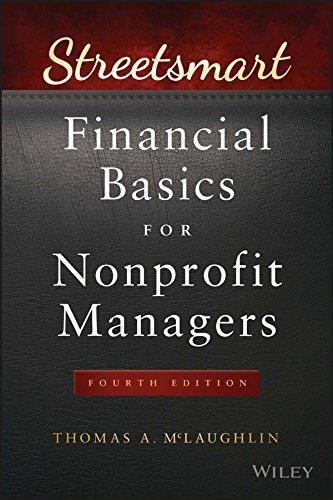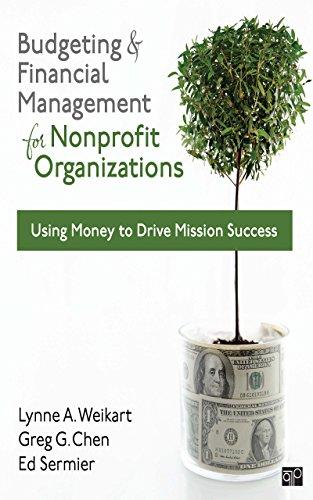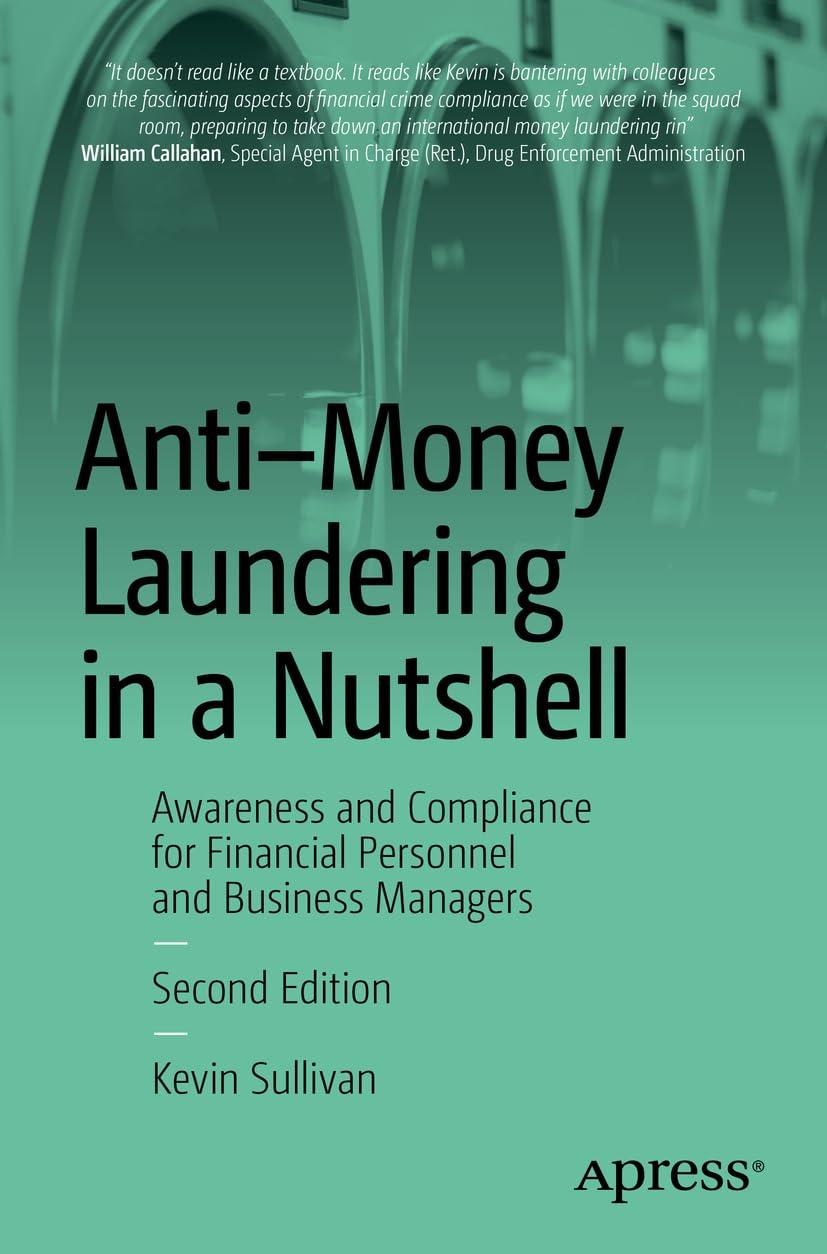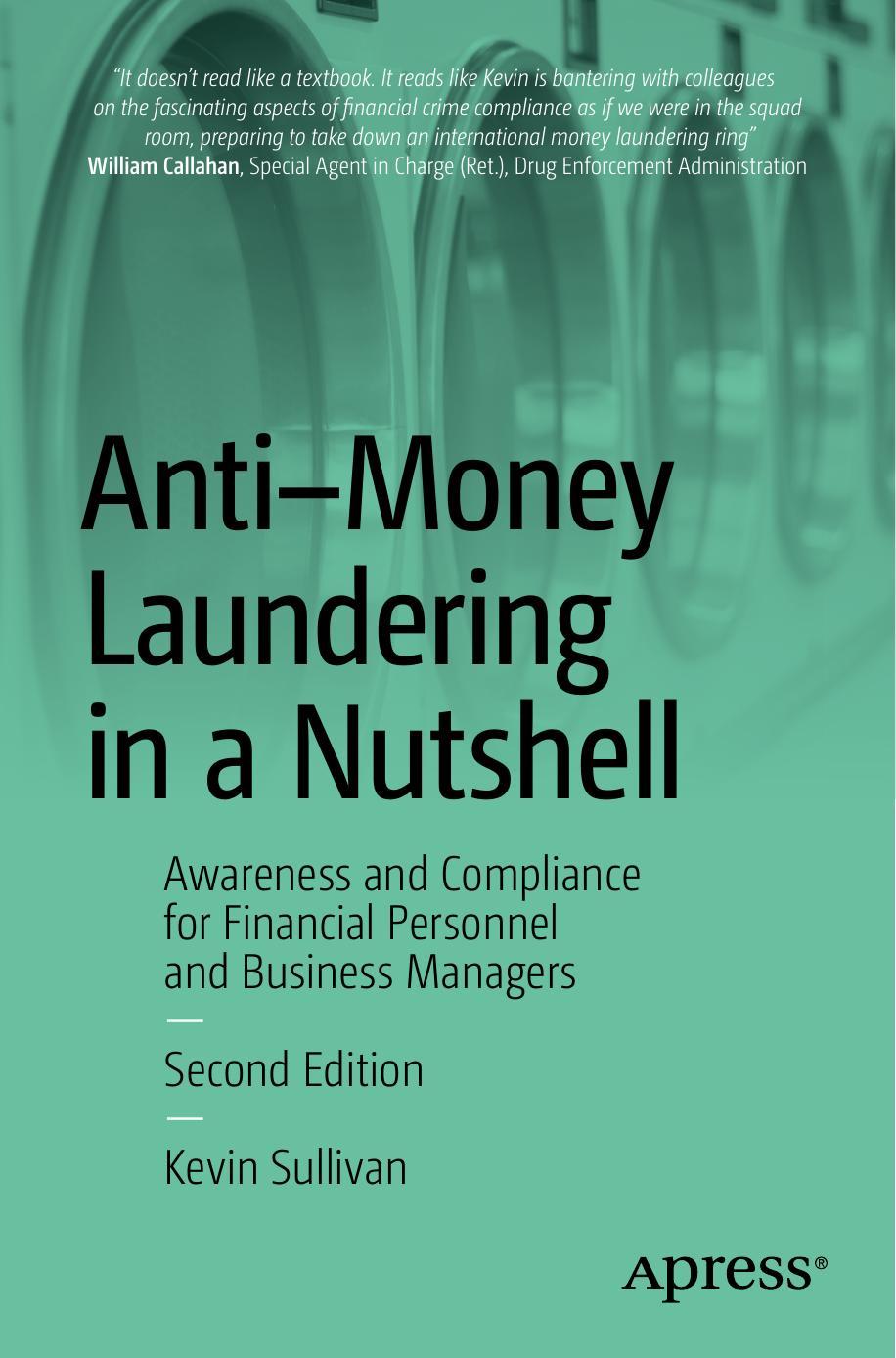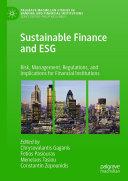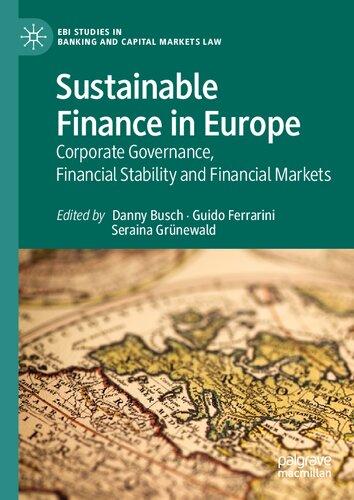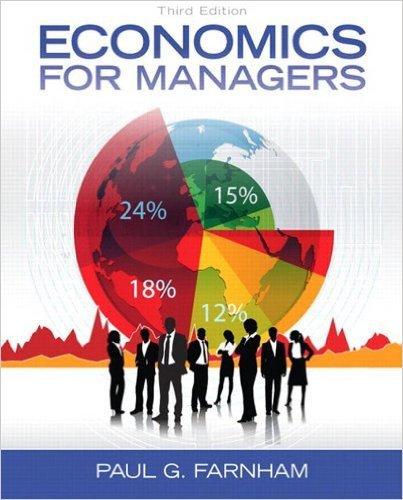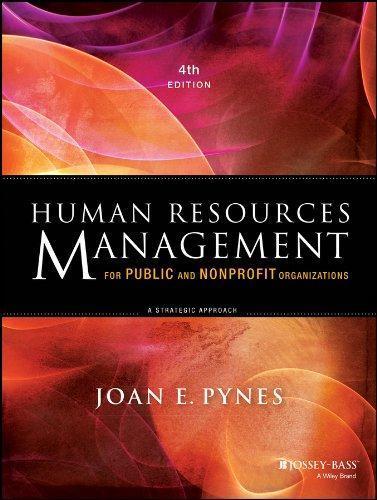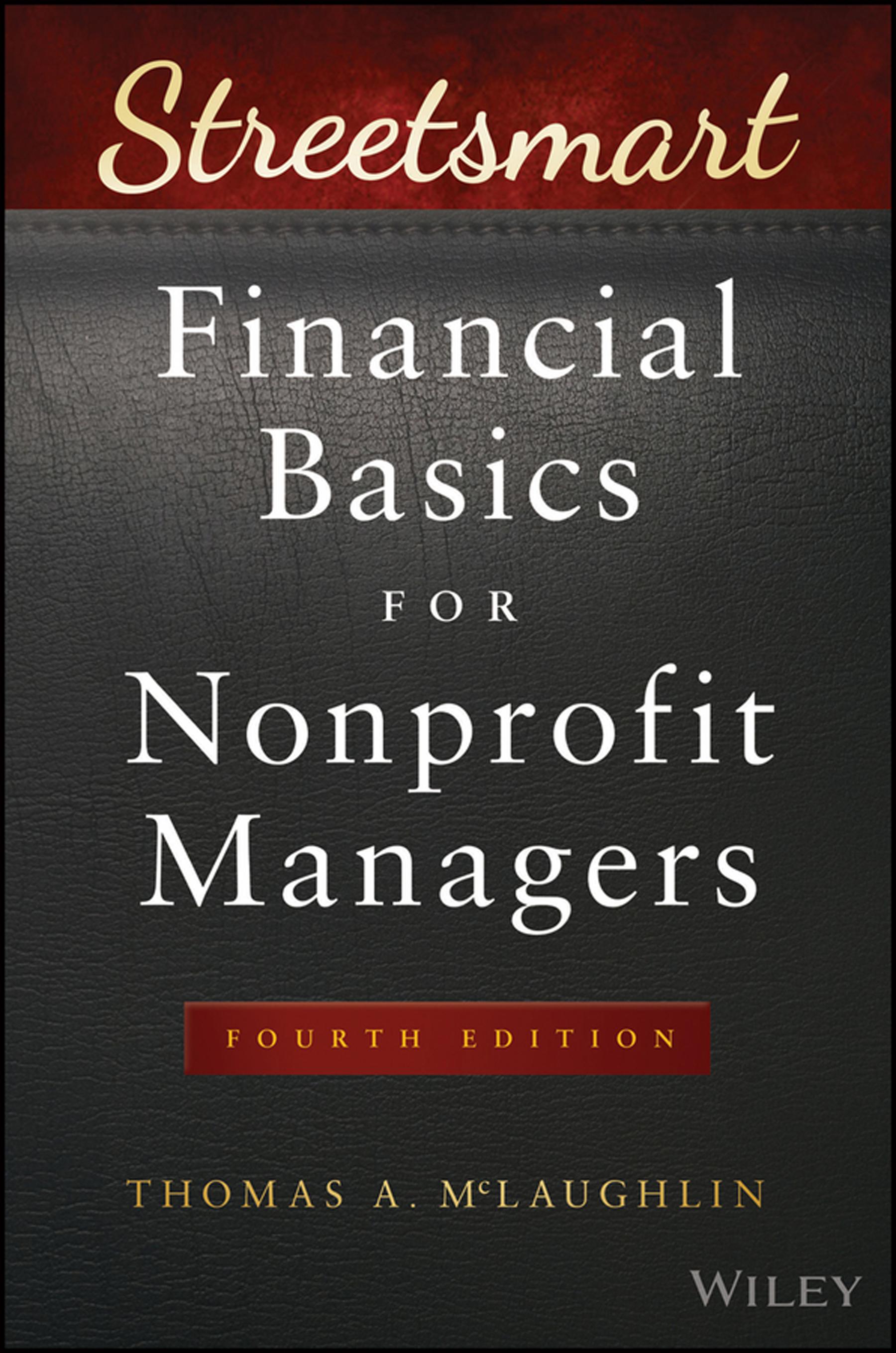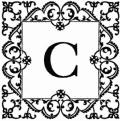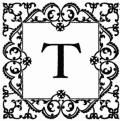NotetoReader
Throughoutthisbook,awebiconindicatesthatyoushouldgoto theaccompanyingwebsiteforcorrespondingtemplatesorexamples. Thewebsiteaddressiswww.wiley.com/go/basics4E.RefertoAppendix C,“UsingtheWebsite,”forthetableofcontentsanddetailedinstructions foruseofthesetemplates.
Another random document with no related content on Scribd:
might flourish. But since there isn’t even a spark of Glory to blow out— Alfonso! Victor Emmanuel! Poincaré!—what’s the good of blowing?
So they set up a little harmless Glory in baggy trousers—Papa Mussolini —or a bit of fat, self-loving but amiable elder-brother Glory in General de Rivera: and they call it power. And the democratic world holds up its hands, and moans: “Dictators! Tyranny!” While the conservative world cheers loudly, and cries: “The Man! The Man! El hombre! L’uomo! L’homme!
Hooray!!!”
Bunk!
We want life. And we want the power of life. We want to feel the power of life in ourselves.
We’re sick of being soft, and amiable, and harmless. We’re sick to death of even enjoying ourselves. We’re a bit ashamed of our own existence. Or if we aren’t we ought to be.
But what then? Shall we exclaim, in a fat voice: “Aha! Power! Glory! Force! The Man!”—and proceed to set up a harmless Mussolini, or a fat Rivera? Well, let us, if we want to. Only it won’t make the slightest difference to our real living. Except it’s probably a good thing to have the press—the newspaper press—crushed under the up-to-date rubber heel of a tyrannous but harmless dictator.
We won’t speak of poor old Hindenburg. Except, why didn’t they set up his wooden statue with all the nails knocked into it, for a President? For surely they drove something in, with those nails!
We had a harmless dictator, in Mr. Lloyd George. Better go ahead with the Houses of Representatives, than have another shot in that direction. Power! How can there be power in politics, when politics is money?
Money is power, they say. Is it? Money is to power what margarine is to butter: a nasty substitute.
No, power is something you’ve got to respect, even revere, before you can have it. It isn’t bossing, or bullying, hiring a manservant or Salvationising your social inferior, issuing loud orders and getting your own way, doing your opponent down. That isn’t power.
Power is pouvoir: to be able to.
Might: the ability to make: to bring about that which may-be.
And where are we to get Power, or Might, or Glory, or Honour, or Wisdom?
Out of Lloyd George, or Lenin, or Mussolini, or Rivera, or anything else political?
Bah! It has to be in the people, before it can come out in politics. Do we want Power, Might, Glory, Honour, and Wisdom?
If we do, we’d better start to get them, each man for himself.
But if we don’t, we’d better continue our lick-spittling course of being as happy, as happy as Kings.
“The world is so full of a number of things We ought all to be happy, as happy as Kings.”
Which Kings, might we ask? Better be careful!
Myself I want Power. But I don’t want to boss anybody. I want Honour. But I don’t see any existing nation or government that could give it me.
I want Glory. But heaven save me from mankind. I want Might. But perhaps I’ve got it.
The first thing, of course, is to open one’s heart to the source of Power, and Might, and Glory, and Honour. It just depends, which gates of one’s heart one opens. You can open the humble gate, or the proud gate. Or you can open both, and see what comes.
Best open both, and take the responsibility. But set a guard at each gate, to keep out the liars, the snivellers, the mongrel and the greedy.
However smart we be, however rich and clever or loving or charitable or spiritual or impeccable, it doesn’t help us at all. The real power comes in to us from beyond. Life enters us from behind, where we are sightless, and from below, where we do not understand.
And unless we yield to the beyond, and take our power and might and honour and glory from the unseen, from the unknown, we shall continue empty. We may have length of days. But an empty tin can lasts longer than Alexander lived.
So, anomalous as it may sound, if we want power, we must put aside our own will, and our own conceit, and accept power, from the beyond.
And having admitted the power from the beyond into us, we must abide by it, and not traduce it. Courage, discipline, inward isolation, these are the conditions upon which power will abide in us.
And between brave people there will be the communion of power, prior to the communion of love. The communion of power does not exclude the communion of love. It includes it. The communion of love is only a part of the greater communion of power.
Power is the supreme quality of God and man: the power to cause, the power to create, the power to make, the power to do, the power to destroy. And then, between those things which are created or made, love is the supreme binding relationship. And between those who, with a single impulse, set out passionately to destroy what must be destroyed, joy flies like electric sparks, within the communion of power.
Love is simply and purely a relationship, and in a pure relationship there can be nothing but equality; or at least equipoise.
But Power is more than a relationship. It is like electricity, it has different degrees. Men are powerful or powerless, more or less: we know not how or why. But it is so. And the communion of power will always be a communion in inequality.
In the end, as in the beginning, it is always Power that rules the world! There must be rule. And only Power can rule. Love cannot, should not, does not seek to. The statement that love rules the camp, the court, the grove, is a lie; and the fact that such love has to rhyme with “grove”, proves it. Power rules and will always rule. Because it was Power that created us all. The act of love itself is an act of power, original as original sin. The power is given us.
As soon as there is an act, even in love, it is power. Love itself is purely a relationship.
But in an age that, like ours, has lost the mystery of power, and the reverence for power, a false power is substituted: the power of money. This is a power based on the force of human envy and greed, nothing more. So nations naturally become more envious and greedy every day. While individuals ooze away in a cowardice that they call love. They call it love, and peace, and charity, and benevolence, when it is mere cowardice. Collectively they are hideously greedy and envious.
True power, as distinct from the spurious power, which is merely the force of certain human vices directed and intensified by the human will: true power never belongs to us. It is given us, from the beyond.
Even the simplest form of power, physical strength, is not our own, to do as we like with. As Samson found.
But power is given differently, in varying degrees and varying kind to different people. It always was so, it always will be so. There will never be equality in power. There will always be unending inequality.
Nowadays, when the only power is the power of human greed and envy, the greatest men in the world are men like Mr. Ford, who can satisfy the modern lust, we can call it nothing else, for owning a motorcar: or men like the great financiers, who can soar on wings of greed to uncanny heights, and even can spiritualise greed.
They talk about “equal opportunity”: but it is bunk, ridiculous bunk. It is the old fable of the fox asking the stork to dinner. All the food is to be served in a shallow dish, levelled to perfect equality, and you get what you can.
If you’re a fox, like the born financier, you get a bellyful and more. If you’re a stork, or a flamingo, or even a man, you have the food gobbled from under your nose, and you go comparatively empty.
Is the fox, then, or the financier, the highest animal in creation? Bah!
Humanity never bunked itself so thoroughly as with the bunk of equality, even qualified down to “equal opportunity”.
In living life, we are all born with different powers, and different degrees of power: some higher, some lower. The only thing to do is honorably to accept it, and to live in the communion of power. Is it not better to serve a man in whom power lives, than to clamour for equality with Mr. Motor-car Ford, or Mr. Shady Stinnes? Pfui! to your equality with such men! It gives me gooseflesh.
How much better it must have been, to be a colonel under Napoleon, than to be a Marshal Foch! Oh! how much better it must have been, to live in terror of Peter the Great—who was great—than to be a member of the proletariat under Comrade Lenin: or even to be Comrade Lenin: though even he was greatish, far greater than any extant millionaire.
Power is beyond us. Either it is given us from the unknown, or we have not got it. And better to touch it in another, than never to know it. Better be a Russian and shoot oneself out of sheer terror of Peter the Great’s displeasure, than to live like a well-to-do American, and never know the mystery of Power at all. Live in blank sterility.
For Power is the first and greatest of all mysteries. It is the mystery that is behind all our being, even behind all our existence. Even the Phallic erection is a first blind movement of power. Love is said to call the power into motion: but it is probably the reverse: that the slumbering power calls love into being.
Power is manifold. There is physical strength, like Samson’s. There is racial power, like David’s or Mahomet’s. There is mental power, like that of Socrates, and ethical power, like that of Moses, and spiritual power, like Jesus’ or like Buddha’s, and mechanical power, like that of Stephenson, or military power, like Napoleon’s, or political power, like Pitt’s. These are all true manifestations of power, coming out of the unknown.
Unlike the millionaire power, which comes out of the known forces of human greed and envy.
Power puts something new into the world. It may be Edison’s gramaphone, or Newton’s Law or Cæsar’s Rome or Jesus’ Christianity, or even Attila’s charred ruins and emptied spaces. Something new displaces something old, and sometimes room has to be cleared beforehand.
Then power is obvious. Power is much more obvious in its destructive than in its constructive activity. A tree falls with a crash. It grew without a sound.
Yet true destructive power is power just the same as constructive. Even Attila, the Scourge of God, who helped to scourge the Roman world out of existence, was great with power. He was the scourge of God: not the scourge of the League of Nations, hired and paid in cash.
If it must be a scourge, let it be a scourge of God. But let it be power, the old divine power. The moment the divine power manifests itself, it is right: whether it be Attila or Napoleon or George Washington. But Lloyd George, and Woodrow Wilson, and Lenin, they never had the right smell. They never even roused real fear: no real passion. Whereas a manifestation of real power arouses passion, and always will.
Time it should again.
Blessed are the powerful, for theirs is the kingdom of earth.
LOVE WAS ONCE A LITTLE BOY
OLLAPSE, as often as not, is the result of persisting in an old attitude towards some important relationship, which, in the course of time, has changed its nature.
Love itself is a relationship, which changes as all things change, save abstractions. If you want something really more durable than diamonds you must be content with eternal truths like “twice two are four”.
Love is a relationship between things that live, holding them together in a sort of unison. There are other vital relationships. But love is this special one.
In every living thing there is the desire, for love, or for the relationship of unison with the rest of things. That a tree should desire to develop itself between the power of the sun, and the opposite pull of the earth’s centre, and to balance itself between the four winds of heaven, and to unfold itself between the rain and the shine, to have roots and feelers in blue heaven and innermost earth, both, this is a manifestation of love: a knitting together of the diverse cosmos into a oneness, a tree.
At the same time, the tree must most powerfully exert itself and defend itself, to maintain its own integrity against the rest of things.
So that love, as a desire, is balanced against the opposite desire, to maintain the integrity of the individual self.
Hate is not the opposite of love. The real opposite of love is individuality.
We live in the age of individuality, we call ourselves the servants of love. That is to say, we enact a perpetual paradox.
Take the love of a man and a woman, today. As sure as you start with a case of “true love” between them, you end with a terrific struggle and conflict of the two opposing egos or individualities. It is nobody’s fault: it is the inevitable result of trying to snatch an intensified individuality out of the mutual flame.
Love, as a relationship of unison, means and must mean, to some extent, the sinking of the individuality. Woman for centuries was expected to sink her individuality into that of her husband and family. Nowadays the tendency is to insist that a man shall sink his individuality into his job, or his business, primarily, and secondarily into his wife and family.
At the same time, education and the public voice urges man and woman into intenser individualism. The sacrifice takes the old symbolic form of throwing a few grains of incense on the altar. A certain amount of time, labor, money, emotion are sacrificed on the altar of love, by man and woman: especially emotion. But each calculates the sacrifice. And man and woman alike, each saves his individual ego, her individual ego, intact, as far as possible, in the scrimmage of love. Most of our talk about love is cant, and bunk. The treasure of treasures to man and woman today is his own, or her own ego. And this ego, each hopes it will flourish like a salamander in the flame of love and passion. Which it well may: but for the fact that there are two salamanders in the same flame, and they fight till the flame goes out. Then they become grey cold lizards of the vulgar ego.
It is much easier, of course, when there is no flame. Then there is no serious fight.
You can’t worship love and individuality in the same breath. Love is a mutual relationship, like a flame between wax and air. If either wax or air insists on getting its own way, or getting its own back too much, the flame goes out and the unison disappears. At the same time, if one yields itself up to the other entirely, there is a guttering mess. You have to balance love and individuality, and actually sacrifice a portion of each.
You have to have some sort of balance.
The Greeks said equilibrium. But whereas you can quite nicely balance a pound of butter against a pound of cheese, it is quite another matter to balance a rose and a ruby. Still more difficult is it to put male man in one scale and female woman in the other, and equilibrate that little pair of opposites.
Unless, of course, you abstract them. It’s easy enough to balance a citizen against a citizeness, a Christian against a Christian, a spirit against a spirit, or a soul against a soul. There’s a formula for each case. Liberty, Equality, Fraternity, etc., etc.
But the moment you put young Tom in one scale, and young Kate in the other: why, not God Himself has succeeded as yet in striking a nice level balance. Probably doesn’t intend to, ever.
Probably it’s one of the things that are most fascinating because they are nearly possible, yet absolutely impossible. Still, a miss is better than a mile. You can at least draw blood.
How can I equilibrate myself with my black cow Susan? I call her daily at six o’clock. And sometimes she comes. But sometimes, again, she doesn’t, and I have to hunt her away among the timber. Possibly she is lying peacefully in cowy inertia, like a black Hindu statue, among the oak-scrub. Then she rises with a sighing heave. My calling was a mere nothing against the black stillness of her cowy passivity.
Or possibly she is away down in the bottom corner, lowing sotto voce and blindly to some far-off, inaccessible bull. Then when I call at her, and approach, she screws round her tail and flings her sharp, elastic haunch in the air with a kick and a flick, and plunges off like a buck rabbit, or like a black demon among the pine trees, her udder swinging like a chime of bells. Or possibly the coyotes have been howling in the night along the top fence. And then I call in vain. It’s a question of saddling a horse and sifting the bottom timber. And there at last the horse suddenly winces, starts: and with a certain pang of fear I too catch sight of something black and motionless and alive, and terribly silent, among the tree-trunks. It is Susan, her ears apart, standing like some spider suspended motionless by a thread, from the web of the eternal silence. The strange faculty she has, cow-given, of becoming a suspended ghost, hidden in the very crevices of the atmosphere! It is something in her will. It is her tarnhelm. And then, she doesn’t know me. If I am afoot, she knows my voice, but not the advancing me, in a blue shirt and cord trousers. She waits, suspended by the thread, till I come close. Then she reaches forward her nose, to smell. She smells my hand: gives a little snort, exhaling her breath, with a kind of contempt, turns, and ambles up towards the homestead, perfectly assured. If I am on horse-back, although she knows the grey horse perfectly well, at the same time she doesn’t know what it is. She waits till the wicked Azul, who is a born cowpunching pony, advances mischievously at her. Then round she swings, as if on the blast of some sudden wind, and with her ears back, her head rather down, her black back curved, up she goes, through the timber, with surprising, swimming swiftness. And the Azul, snorting with jolly mischief,
dashes after her. And when she is safely in her milking place, still she watches with her great black eyes as I dismount. And she has to smell my hand before the cowy peace of being milked enters her blood. Till then, there is something roaring in the chaos of her universe. When her cowy peace comes, then her universe is silent, and like the sea with an even tide, without sail or smoke: nothing.
That is Susan, my black cow.
And how am I going to equilibrate myself with her? Or even, if you prefer the word, to get in harmony with her?
Equilibrium? Harmony? with that black blossom! Try it!
She doesn’t even know me. If I put on a pair of white trousers, she wheels away as if the devil was on her back. I have to go behind her, talk to her, stroke her, and let her smell my hand; and smell the white trousers. She doesn’t know they are trousers. She doesn’t know that I am a gentleman on two feet. Not she. Something mysterious happens in her blood and her being, when she smells me and my nice white trousers.
Yet she knows me, too. She likes to linger, while one talks to her. She knows quite well she makes me mad when she swings her tail in my face. So sometimes she swings it, just on purpose: and looks at me out of the black corner of her great, pure-black eye, when I yell at her. And when I find her, away down the timber, when she is a ghost, and lost to the world, like a spider dangling in the void of chaos, then she is relieved. She comes to, out of a sort of trance, and is relieved, trotting up home with a queer, jerky cowy gladness. But she is never really glad, as the horses are. There is always a certain untouched chaos in her.
Where she is when she’s in the trance, heaven only knows.
That’s Susan! I have a certain relation to her. But that she and I are in equilibrium, or in harmony, I would never guarantee while the world stands. As for her individuality being in balance with mine, one can only feel the great blank of the gulf.
Yet a relationship there is. She knows my touch and she goes very still and peaceful, being milked. I, too, I know her smell and her warmth and her feel. And I share some of her cowy silence, when I milk her. There is a sort of relation between us. And this relation is part of the mystery of love: the individuality on each side, mine and Susan’s, suspended in the relationship.
Cow Susan by the forest’s rim
A black-eyed Susan was to him And nothing more
One understands Wordsworth and the primrose and the yokel. The yokel had no relation at all—or next to none—with the primrose. Wordsworth gathered it into his own bosom and made it part of his own nature. “I, William, am also a yellow primrose blossoming on a bank.” This, we must assert, is an impertinence on William’s part. He ousts the primrose from its own individuality. He doesn’t allow it to call its soul its own. It must be identical with his soul. Because, of course, by begging the question, there is but One Soul in the universe.
This is bunk. A primrose has its own peculiar primrosy identity, and all the oversouling in the world won’t melt it into a Williamish oneness. Neither will the yokel’s remarking: “Nay, boy, that’s nothing. It’s only a primrose!”—turn the primrose into nothing. The primrose will neither be assimilated nor annihilated, and Boundless Love breaks on the rock of one more flower. It has its own individuality, which it opens with lovely naïveté to sky and wind and William and yokel, bee and beetle alike. It is itself. But its very floweriness is a kind of communion with all things: the love unison.
In this lies the eternal absurdity of Wordsworth’s lines. His own behaviour, primrosely, was as foolish as the yokel’s.
“A primrose by the river’s brim
A yellow primrose was to him And nothing more ”
A primrose by the river’s brim
A yellow primrose was to him And a great deal more
A primrose by the river’s brim Lit up its pallid yellow glim Upon the floor
And watched old Father William trim His course beside the river’s brim And trembled sore
The yokel, going for a swim Had very nearly trod on him An hour before.
And now the poet’s fingers slim Were reaching out to pluck at him And hurt him more
Oh gentlemen, hark to my hymn! To be a primrose is my whim Upon the floor, And nothing more
The sky is with me, and the dim Earth clasps my roots Your shadows skim My face once more Leave me therefore Upon the floor; Say au revoir....
Ah William! The “something more” that the primrose was to you, was yourself in the mirror. And if the yokel actually got as far as beholding a “yellow primrose”, he got far enough.
You see it is not so easy even for a poet to equilibrate himself even with a mere primrose. He didn’t leave it with a soul of its own. It had to have his soul. And nature had to be sweet and pure, Williamish. Sweet-Williamish at
that! Anthropomorphised! Anthropomorphism, that allows nothing to call its soul its own, save anthropos: and only a special brand, even of him!
Poetry can tell alluring lies, when we let our feelings, or our ego, run away with us.
And we must always beware of romance: of people who love nature, or flowers, or dogs, or babies, or pure adventure. It means they are getting into a love-swing where everything is easy and nothing opposes their own egoism. Nature, babies, dogs are so lovable, because they can’t answer back. The primrose, alas! couldn’t pipe up and say: “Hey! Bill! get off the barrow!”
That’s the best of men and women. There’s bound to be a lot of back chat. You can Lucy Gray your woman as hard as you like, one day she’s bound to come back at you: “Who are you when you’re at home?”
A man isn’t going to spread his own ego over a woman, as he has done over nature and primroses, and dogs, or horses, or babies, or “the people”, or the proletariat or the poor-and-needy. The old hen takes the cock by the beard, and says: “That’s me, mind you!”
Man is an individual, and woman is an individual. Which sounds easy.
But it’s not as easy as it seems. These two individuals are as different as chalk and cheese. True, a pound of chalk weighs as much as a pound of cheese. But the proof of the pudding is in the eating, not the scales.
That is to say, you can announce that men and women should be equal and are equal. All right. Put them in the scales.
Alas! my wife is about twenty pounds heavier than I am.
Nothing to do but to abstract. L’homme est né libre: with a napkin round his little tail.
Nevertheless, I am a citizen, my wife is a citizeness: I can vote, she can vote, I can be sent to prison, she can be sent to prison, I can have a passport, she can have a passport, I can be an author, she can be an authoress. Ooray! OO-bloomin-ray!
You see, we are both British subjects. Everybody bow! Subjects! Subjects! Subjects!
Madame is already shaking herself like a wet hen.
But yes, my dear! we are both subjects. And as subjects, we enjoy a lovely equality, liberty, my dear! Equality! Fraternity or Sorority! my dear!
Aren’t you pleased?
But it’s no use talking to a wet hen. That “subject” was a cold douche.
As subjects, men and women may be equal.
But as objects, it’s another pair of shoes. Where, I ask you, is the equality between an arrow and a horseshoe? or a serpent and a squashblossom? Find me the equation that equates the cock and the hen.
You can’t.
As inhabitants of my backyard, as loyal subjects of my rancho, they, the cock and the hen, are equal. When he gets wheat, she gets wheat. When sour milk is put out, it is as much for him as for her. She is just as free to go where she likes, as he is. And if she likes to crow at sunrise, she may. There is no law against it. And he can lay an egg, if the fit takes him. Absolutely nothing forbids.
Isn’t that equality? If it isn’t, what is?
Even then, they’re two very different objects.
As equals, they are just a couple of barnyard fowls, clucking! generalised!
But dear me, when he comes prancing up with his red beard shaking, and his eye gleaming, and she comes slowly pottering after, with her nose to the ground, they’re two very different objects. You never think of equality: or of inequality, for that matter. They’re a cock and a hen, and you accept them as such.
You don’t think of them as equals, or as unequals. But you think of them together.
Wherein, then, lies the togetherness?
Would you call it love?
I wouldn’t.
Their two egos are absolutely separate. He’s a cock, she’s a hen. He never thinks of her for a moment, as if she were a cock like himself; and she never thinks for a moment that he is a hen like herself. I never hear anything in her squawk which would seem to say: “Aren’t I a fowl as much as you are, you brute!” Whereas I always hear women shrieking at their men: “Aren’t I a human being as much as you are?”
It seems beside the point.
I always answer my spouse, with sweet reasonableness: “My dear, we are both British Subjects. What can I say more, on the score of equality? You are a British Subject as much as I am.”
Curiously, she hates to have it put that way. She wants to be a human being as much as I am. But absolutely and honestly, I don’t know what a human-being is. Whereas I do know what a British Subject is. It can be defined.
And I can see how a Civis Romanum, or a British Subject can be free, whether it’s he or she. The he-ness or the she-ness doesn’t matter. But how a man can consider himself free, I don’t know. Any more than a cock-robin or a dandelion.
Imagine a dandelion suddenly hissing: “I am free and I will be free!” Then wriggling on his root like a snake with his tail pegged down!
What a horrifying sight!
So it is when a man, with two legs and a penis, a belly and a mouth begins to shout about being free. One wants to ask: which bit do you refer to?
There’s a cock and there’s the hen, and their two egos or individualities seem to stay apart without friction. They never coo at one another, nor hold each other’s hand. I never see her sitting on his lap and being petted. True, sometimes he calls for her to come and eat a titbit. And sometimes he dashes at her and walks over her for a moment. She doesn’t seem to mind. I never hear her squawking: “Don’t you think you can walk over me!”
Yet she’s by no means downtrodden. She’s just herself, and seems to have a good time: and she doesn’t like it if he is missing.
So there is this peculiar togetherness about them. You can’t call it love. It would be too ridiculous.
What then?
As far as I can see, it is desire. And the desire has a fluctuating intensity, but it is always there. His desire is always towards her, even when he has absolutely forgotten her. And by the way she puts her feet down, I can see she always walks in her plumes of desirableness, even when she’s going broody.
The mystery about her, is her strange undying desirableness. You can see it in every step she takes. She is desirable. And this is the breath of her life.
It is the same with Susan. The queer cowy mystery of her is her changeless cowy desirableness. She is far, alas, from any bull. She never even remotely dreams of a bull, save at rare and brief periods. Yet her whole being and motion is that of being desirable: or else fractious. It seems to unite her with the very air, and the plants and trees. Even to the sky and the trees and the grass and the running stream, she is subtly, delicately and purely desirable, in cowy desirability. It is her cowy mystery. Then her fractiousness is the fireworks of her desirableness.
To me she is fractious, tiresome, and a faggot. Yet the subtle desirableness is in her, for me. As it is in a brown hen, or even a sow. It is like a peculiar charm: the creature’s femaleness, her desirableness. It is her sex, no doubt: but so subtle as to have nothing to do with function. It is a mystery, like a delicate flame. It would be false to call it love, because love complicates the ego. The ego is always concerned in love. But in the frail, subtle desirousness of the true male, towards everything female, and the equally frail, indescribable desirability of every female for every male, lies the real clue to the equating, or the relating, of things which otherwise are incommensurable.
And this, this desire, is the reality which is inside love. The ego itself plays a false part in it. The individual is like a deep pool, or tarn, in the mountains, fed from beneath by unseen springs, and having no obvious inlet or outlet. The springs which feed the individual at the depths are sources of power, power from the unknown. But it is not until the stream of desire overflows and goes running downhill into the open world, that the individual has his further, secondary existence.
Now we have imagined love to be something absolute and personal. It is neither. In its essence, love is no more than the stream of clear and unmuddied, subtle desire which flows from person to person, creature to creature, thing to thing. The moment this stream of delicate but potent desire dries up, the love has dried up, and the joy of life has dried up. It’s no good trying to turn on the tap. Desire is either flowing, or gone, and the love with it, and the life too.
This subtle streaming of desire is beyond the control of the ego. The ego says: “This is my love, to do as I like with! This is my desire, given me for my own pleasure.”
But the ego deceives itself. The individual cannot possess the love which he himself feels. Neither should he be entirely possessed by it. Neither man nor woman should sacrifice individuality to love, nor love to individuality.
If we lose desire out of our life, we become empty vessels. But if we breakout own integrity, we become a squalid mess, like a jar of honey dropped and smashed.
The individual has nothing, really, to do with love. That is, his individuality hasn’t. Out of the deep silence of his individuality runs the stream of desire, into the open squash-blossom of the world. And the stream of desire may meet and mingle with the stream from a woman. But it is never himself that meets and mingles with herself: any more than two lakes, whose waters meet to make one river, in the distance, meet in themselves.
The two individuals stay apart, for ever and ever. But the two streams of desire, like the Blue Nile and the White Nile, from the mountains one and from the low hot lake the other, meet and at length mix their strange and alien waters, to make a Nilus Flux.
See then the childish mistake we have made, about love. We have insisted that the two individualities should “fit”. We have insisted that the “love” between man and woman must be “perfect”. What on earth that means, is a mystery. What would a perfect Nilus Flux be?—one that never overflowed its banks? or one that always overflowed its banks? or one that had exactly the same overflow every year, to a hair’s-breadth?
My dear, it is absurd. Perfect love is an absurdity. As for casting out fear, you’d better be careful. For fear, like curses and chickens, will also come home to roost.
Perfect love, I suppose, means that a married man and woman never contradict one another, and that they both of them always feel the same thing at the same moment, and kiss one another on the strength of it. What blarney! It means, I suppose, that they are absolutely intimate: this precious intimacy that lovers insist on. They tell each other everything: and if she puts on chiffon knickers, he ties the strings for her: and if he blows his nose, she holds the hanky.
Pfui! Is anything so loathsome as intimacy, especially the married sort, or the sort that “lovers” indulge in!
It’s a mistake and ends in disaster. Why? Because the individualities of men and women are incommensurable, and they will no more meet than the
mountains of Abyssinia will meet with Lake Victoria Nyanza. It is far more important to keep them distinct, than to join them. If they are to join, they will join in the third land where the two streams of desire meet.
Of course, as citizen and citizeness, as two persons, even as two spirits, man and woman can be equal and intimate. But this is their outer, more general or common selves. The individual man himself, and the individual woman herself, this is another pair of shoes.
It is a pity that we have insisted on putting all our eggs in one basket: calling love the basket, and ourselves the eggs. It is a pity we have insisted on being individuals only in the communistic, semi-abstract or generalised sense: as voters, money-owners, “free” men and women: free in so far as we are all alike, and individuals in so far as we are commensurable integers.
By turning ourselves into integers: every man to himself and every woman to herself a Number One; an infinite number of Number Ones; we have destroyed ourselves as desirous or desirable individuals, and broken the inward sources of our power, and flooded all mankind into one dreary marsh where the rivers of desire lie dead with everything else, except a stagnant unity.
It is a pity of pities women have learned to think like men. Any husband will say, “they haven’t.” But they have: they’ve all learned to think like some other beastly man, who is not their husband. Our education goes on and on, on and on, making the sexes alike, destroying the original individuality of the blood, to substitute for it this dreary individuality of the ego, the Number One. Out of the ego streams neither Blue Nile nor White Nile. The infinite number of little human egos makes a mosquito marsh, where nothing happens except buzzing and biting, ooze and degeneration.
And they call this marsh, with its poisonous will-o-the-wisps, and its clouds of mosquitos, democracy, and the reign of love!!
You can have it.
I am a man, and the Mountains of Abyssinia, and my Blue Nile flows towards the desert. There should be a woman somewhere far South, like a great lake, sending forth her White Nile towards the desert, too: and the rivers will meet among the Slopes of the World, somewhere.
But alas, every woman I’ve ever met spends her time saying she’s as good as any man, if not better, and she can beat him at his own game. So Lake Victoria Nyanza gets up on end, and declares it’s the Mountains of
Abyssinia, and the Mountains of Abyssinia fall flat and cry: “You’re all that, and more, my dear!”—and between them, you’re bogged.
I give it up.
But at any rate it’s nice to know what’s wrong, since wrong it is.
If we were men, if we were women, our individualities would be lone and a bit mysterious, like tarns, and fed with power, male power, female power, from underneath, invisibly. And from us the streams of desire would flow out in the eternal glimmering adventure, to meet in some unknown desert.
Mais nous avons changé tout cela.
I’ll bet the yokel, even then, was more himself, and the stream of his desire was stronger and more gurgling, than William Wordsworth’s. For a long time the yokel retains his own integrity, and his own real stream of desire flows from him. Once you break this, and turn him, who was a yokel, into still another Number One, an assertive newspaper-parcel of an ego, you’ve done it!
But don’t, dear, darling reader, when I say “desire”, immediately conclude that I mean a jungleful of rampaging Don Juans and raping buck niggers. When I say that a woman should be eternally desirable, don’t say that I mean every man should want to sleep with her, the instant he sets eyes on her.
On the contrary. Don Juan was only Don Juan because he had no real desire. He had broken his own integrity, and was a mess to start with. No stream of desire, with a course of its own, flowed from him. He was a marsh in himself. He mashed and trampled everything up, and desired no woman, so he ran after every one of them, with an itch instead of a steady flame. And tortured by his own itch, he inflamed his itch more and more. That’s Don Juan, the man who couldn’t desire a woman. He shouldn’t have tried. He should have gone into a monastery at fifteen.
As for the yokel, his little stream may have flowed out of commonplace little hills, and been ready to mingle with the streams of any easy, puddly little yokeless. But what does it matter! And men are far less promiscuous, even then, than we like to pretend. It’s Don Juanery, sex-in-the-head, no real desire, which leads to profligacy or squalid promiscuity. The yokel usually met desire with desire: which is all right: and sufficiently rare to ensure the moral balance.
Desire is a living stream. If we gave free rein, or a free course, to our living flow of desire, we shouldn’t go far wrong. It’s quite different from giving a free rein to an itching, prurient imagination. That is our vileness.
The living stream of sexual desire itself does not often, in any man, find its object, its confluent, the stream of desire in a woman into which it can flow. The two streams flow together, spontaneously, not often, in the life of any man or woman. Mostly, men and women alike rush into a sort of prostitution, because our idiotic civilisation has never learned to hold in reverence the true desire-stream. We force our desire from our ego: and this is deadly.
Desire itself is a pure thing, like sunshine, or fire, or rain. It is desire that makes the whole world living to me, keeps me in the flow connected. It is my flow of desire that makes me move as the birds and animals move through the sunshine and the night, in a kind of accomplished innocence, not shut outside of the natural paradise. For life is a kind of Paradise, even to my horse Azul, though he doesn’t get his own way in it, by any means, and is sometimes in a real temper about it. Sometimes he even gets a bellyache, with wet alfalfa. But even the bellyache is part of the natural paradise. Not like human ennui.
So a man can go forth in desire, even to the primroses. But let him refrain from falling all over the poor blossom, as William did. Or trying to incorporate it in his own ego, which is a sort of lust. Nasty anthropomorphic lust.
Everything that exists, even a stone, has two sides to its nature. It fiercely maintains its own individuality, its own solidity. And it reaches forth from itself in the subtlest flow of desire.
It fiercely resists all inroads. At the same time it sinks down in the curious weight, or flow, of that desire which we call gravitation. And imperceptibly, through the course of ages, it flows into delicate combination with the air and sun and rain.
At one time, men worshipped stones: symbolically, no doubt, because of their mysterious durability, their power of hardness, resistance, their strength of remaining unchanged. Yet even then, worshipping man did not rest till he had erected the stone into a pillar, a menhir, symbol of the eternal desire, as the phallus itself is but a symbol.
And we, men and women, are the same as stones: the powerful resistance and cohesiveness of our individuality is countered by the mysterious flow of desire, from us and towards us.
It is the same with the worlds, the stars, the suns. All is alive, in its own degree. And the centripetal force of spinning earth is the force of earth’s individuality: and the centrifugal force is the force of desire. Earth’s immense centripetal energy, almost passion, balanced against her furious centrifugal force, holds her suspended between her moon and her sun, in a dynamic equilibrium.
So instead of the Greek: Know thyself! we shall have to say to every man: “Be Thyself! Be Desirous!”—and to every woman: “Be Thyself! Be Desirable!”
Be Thyself! does not mean: Assert thy ego! It means, be true to your own integrity, as man, as woman: let your heart stay open, to receive the mysterious inflow of power from the unknown: know that the power comes to you from beyond, it is not generated by your own will: therefore all the time, be watchful, and reverential towards the mysterious coming of power into you.
Be Thyself! is the grand cry of individualism. But individualism makes the mistake of considering an individual as a fixed entity: a little windmill that spins without shifting ground or changing its own nature. And this is nonsense. When power enters us, it does not just move us mechanically. It changes us. When the unseen wind blows, it blows upon us, and through us. It carries us like a ship on a sea. And it roars to flame in us, like a draught in a fierce fire. Or like a dandelion in flower.
What is the difference between a dandelion and a windmill?
Heap on more wood!
Even the Nirvanists consider man as a fixed entity, a changeless ego, which is capable of nothing, ultimately, but remerging into the infinite. A little windmill that can turn faster and faster, till it becomes actually invisible, and nothing remains in nothingness, except a blur and a faint hum.
I am not a windmill. I am not even an ego. I am a man.
I am myself, and I remain myself only by the grave of the powers that enter me, from the unseen, and make me forever newly myself.
And I am myself, also, by the grace of the desire that flows from me and consummates me with the other unknown, the invisible, tangible creation.
The powers that enter me fluctuate and ebb. And the desire that goes forth from me waxes and wanes. Sometimes it is weak, and I am almost isolated. Sometimes it is strong, and I am almost carried away.
But supposing the cult of Individualism, Liberty, Freedom, and so forth, has landed me in the state of egoism, the state so prettily and nauseously described by Henley in his Invictus: which, after all, is but the yelp of a house-dog, a domesticated creature with an inferiority complex!
“It matters not how strait the gate, How charged with punishment the scroll:
I am the master of my fate!
I am the captain of my soul!”
Are you, old boy? Then why hippety-hop?
He was a cripple at that!
As a matter of fact, it is the slave’s bravado! The modern slave is he who does not receive his powers from the unseen, and give reverence, but who thinks he is his own little boss. Only a slave would take the trouble to shout: “I am free!” That is to say, to shout it in the face of the open heavens. In the face of men, and their institutions and prisons. Yes-yes! But in the face of the open heavens I would be ashamed to talk about freedom. I have no life, no real power, unless it will come to me. And I accomplish nothing, not even my own fulfilled existence, unless I go forth, delicately, desirous, and find the mating of my desire; even if it be only the sky itself, and trees, and the cow Susan, and the inexpressible consolation of a statue of an Egyptian Pharaoh, or the Old Testament, or even three rubies. These answer my desire with fulfilment. What bunk then to talk about being master of my fate! when my fate depends upon these things:—not to mention the unseen reality that sends strength, or life into me, without which I am a gourd rattle.
The ego, the little conscious ego that I am, that doll-like entity, that mannikin made in ridiculous likeness of the Adam which I am: am I going to allow that that is all of me? And shout about it?
Of course, if I am nothing but an ego, and woman is nothing but another ego, then there is really no vital difference between us. Two little dolls of
conscious entities, squeaking when you squeeze them. And with a tiny bit of an extraneous appendage to mark which is which.
“Woman is just the same as man,” loudly said the political speaker, “Save for a very little difference.”
“Three cheers for the very little difference!” says a vulgar voice from the crowd.
But that’s a chestnut.
“Quick! Sharp! On the alert! Let every gentleman put on his shirt! And be quick if you please! Let every lady put on her chemise!”
Though nowadays, a lady’s chemise won’t save her face.
In or out her chemise, however, doesn’t make much difference to the modern woman. She’s a finished-off ego, an assertive conscious entity, cut off like a doll from any mystery. And her nudity is about as interesting as a doll’s. If you can be interested in the nudity of a doll, then jazz on, jazz on!
The same with the men. No matter how they pull their shirts off they never arrive at their own nakedness. They have none. They can only be undressed. Naked they cannot be. Without their clothes on, they are like a dismantled street-car without its advertisements: sort of public article that doesn’t refer to anything.
The ego! Anthropomorphism! Love! What it works out to in the end is that even anthropos disappears, and leaves a sawdust mannikin wondrously jazzing.
“My little sisters, the birds!” says Francis of Assisi.
“Whew!” goes the blackbird.
“Listen to me, my little sisters, you birds!”
“Whew!” goes the blackbird. “I’m a cock, mister!”
Love! What’s the good of woman who isn’t desirable, even though she’s as pretty as paint, and the waves in her hair are as permanent as the pyramids!
He buried his face in her permanent wave, and cried: “Help! Get me out!”
Individualism! Read the advertisements! “Jew-jew’s hats give a man that individual touch he so much desires. No man could lack individuality in Poppem’s pyjamas.” Poor devil! If he was left to his own skin, where would he be!
Pop goes the weasel!
REFLECTIONS ON THE DEATH OF A PORCUPINE
HERE are many bare places on the little pine trees, towards the top, where the porcupines have gnawed the bark away and left the white flesh showing. And some trees are dying from the top.
Everyone says, porcupines should be killed; the Indians, Mexicans, Americans all say the same.
At full moon a month ago, when I went down the long clearing in the brilliant moonlight, through the poor dry herbage a big porcupine began to waddle away from me, towards the trees and the darkness. The animal had raised all its hairs and bristles, so that by the light of the moon it seemed to have a tall, swaying, moonlit aureole arching its back as it went. That seemed curiously fearsome, as if the animal were emitting itself demon-like on the air.
It waddled very slowly, with its white spiky spoon-tail steering flat, behind the round bear-like mound of its back. It had a lumbering, beetle’s, squalid motion, unpleasant. I followed it into the darkness of the timber, and there, squat like a great tick, it began scrapily to creep up a pine-trunk. It was very like a great aureoled tick, a bug, struggling up.
I stood near and watched, disliking the presence of the creature. It is a duty to kill the things. But the dislike of killing him was greater than the dislike of him. So I watched him climb.
And he watched me. When he had got nearly the height of a man, all his long hairs swaying with a bristling gleam like an aureole, he hesitated, and slithered down. Evidently he had decided, either that I was harmless, or else that it was risky to go up any further, when I could knock him off so easily with a pole. So he slithered podgily down again, and waddled away with the same bestial, stupid motion of that white-spiky repulsive spoon-tail. He was as big as a middle-sized pig: or more like a bear.
I let him go. He was repugnant. He made a certain squalor in the moonlight of the Rocky Mountains. As all savagery has a touch of squalor,
that makes one a little sick at the stomach. And anyhow, it seemed almost more squalid to pick up a pine-bough and push him over, hit him and kill him.
A few days later, on a hot, motionless morning when the pine-trees put out their bristles in stealthy, hard assertion; and I was not in a good temper, because Black-eyed Susan, the cow, had disappeared into the timber, and I had had to ride hunting her, so it was nearly nine o’clock before she was milked: Madame came in suddenly out of the sunlight, saying “I got such a shock! There are two strange dogs, and one of them has got the most awful beard, all round his nose.”
She was frightened, like a child, at something unnatural.
“Beard! Porcupine quills, probably! He’s been after a porcupine.”
“Ah!” she cried in relief. “Very likely! Very likely!”—then with a change of tone; “Poor thing, will they hurt him?”
“They will. I wonder when he came.”
“I heard dogs bark in the night.”
“Did you? Why didn’t you say so? I should have known Susan was hiding—”
The ranch is lonely, there is no sound in the night, save the innumerable noises of the night, that you can’t put your finger on; cosmic noises in the far deeps of the sky, and of the earth.
I went out. And in the full blaze of sunlight in the field, stood two dogs, a black-and-white, and a big, bushy, rather handsome sandy-red dog, of the collie type. And sure enough, this latter did look queer and a bit horrifying, his whole muzzle set round with white spines, like some ghastly growth; like an unnatural beard.
The black-and-white dog made off as I went through the fence. But the red dog whimpered and hesitated, and moved on hot bricks. He was fat and in good condition. I thought he might belong to some shepherds herding sheep in the forest ranges, among the mountains.
He waited while I went up to him, wagging his tail and whimpering, and ducking his head, and dancing. He daren’t rub his nose with his paws any more: it hurt too much. I patted his head and looked at his nose, and he whimpered loudly.
He must have had thirty quills, or more, sticking out of his nose, all the way round: the white, ugly ends of the quills protruding an inch, sometimes more, sometimes less, from his already swollen, blood-puffed muzzle.
The porcupines here have quills only two or three inches long. But they are devilish; and a dog will die if he does not get them pulled out. Because they work further and further in, and will sometimes emerge through the skin away in some unexpected place.
Then the fun began. I got him in the yard: and he drank up the whole half-gallon of the chickens’ sour milk. Then I started pulling out the quills. He was a big, bushy, handsome dog, but his nerve was gone, and every time I got a quill out, he gave a yelp. Some long quills were fairly easy. But the shorter ones, near his lips, were deep in, and hard to get hold of, and hard to pull out when you did get hold of them. And with every one that came out, came a little spurt of blood and another yelp and writhe.
The dog wanted the quills out: but his nerve was gone. Every time he saw my hand coming to his nose, he jerked his head away. I quieted him, and stealthily managed to jerk out another quill, with the blood all over my fingers. But with every one that came out, he grew more tiresome. I tried and tried and tried to get hold of another quill, and he jerked and jerked, and writhed and whimpered, and ran under the porch floor.
It was a curiously unpleasant, nerve-trying job. The day was blazing hot. The dog came out and I struggled with him again for an hour or more. Then we blindfolded him. But either he smelled my hand approaching his nose, or some weird instinct told him. He jerked his head, this way, that way, up, down, sideways, roundwise, as one’s fingers came slowly, slowly, to seize a quill.
The quills on his lips and chin were deep in, only about a quarter of an inch of white stub protruding from the swollen, blood-oozed, festering black skin. It was very difficult to jerk them out.
We let him lie for an interval, hidden in the quiet cool place under the porch floor. After half an hour, he crept out again. We got a rope round his nose, behind the bristles, and one held while the other got the stubs with the pliers. But it was too trying. If a quill came out, the dog’s yelp startled every nerve. And he was frightened of the pain, it was impossible to hold his head still any longer.
After struggling for two hours, and extracting some twenty quills, I gave up. It was impossible to quiet the creature, and I had had enough. His nose on the top was clear: a punctured, puffy, blood-darkened mess; and his lips were clear. But just on his round little chin, where the few white hairs are, was still a bunch of white quills, eight or nine, deep in.
We let him go, and he dived under the porch, and there he lay invisible: save for the end of his bushy, foxy tail, which moved when we came near. Towards noon he emerged, ate up the chicken-food, and stood with that doggish look of dejection, and fear, and friendliness, and greediness, wagging his tail.
But I had had enough.
“Go home!” I said. “Go home! Go home to your master, and let him finish for you.”
He would not go. So I led him across the blazing hot clearing, in the way I thought he should go. He followed a hundred yards, then stood motionless in the blazing sun. He was not going to leave the place.
And I! I simply did not want him.
So I picked up a stone. He dropped his tail, and swerved towards the house. I knew what he was going to do. He was going to dive under the porch, and there stick, haunting the place.
I dropped my stone, and found a good stick under the cedar tree. Already in the heat was that sting-like biting of electricity, the thunder gathering in the sheer sunshine, without a cloud, and making one’s whole body feel dislocated.
I could not bear to have that dog around any more. Going quietly to him, I suddenly gave him one hard hit with the stick, crying: “Go home!” He turned quickly, and the end of the stick caught him on his sore nose. With a fierce yelp, he went off like a wolf, downhill, like a flash, gone. And I stood in the field full of pangs of regret, at having hit him, unintentionally, on his sore nose.
But he was gone.
And then the present moon came, and again the night was clear. But in the interval there had been heavy thunder-rains, the ditch was running with bright water across the field, and the night, so fair, had not the terrific,
mirror-like brilliancy, touched with terror, so startling bright, of the moon in the last days of June.
We were alone on the ranch. Madame went out into the clear night, just before retiring. The stream ran in a cord of silver across the field, in the straight line where I had taken the irrigation ditch. The pine tree in front of the house threw a black shadow. The mountain slope came down to the fence, wild and alert.
“Come!” said she excitedly. “There is a big porcupine drinking at the ditch. I thought at first it was a bear.”
When I got out he had gone. But among the grasses and the coming wild sunflowers, under the moon, I saw his greyish halo, like a pallid living bush, moving over the field, in the distance, in the moonlit clair-obscur.
We got through the fence, and following, soon caught him up. There he lumbered, with his white spoon-tail spiked with bristles, steering behind almost as if he were moving backwards, and this was his head. His long, long hairs above the quills quivering with a dim grey gleam, like a bush.
And again I disliked him.
“Should one kill him?”
She hesitated. Then with a sort of disgust:
“Yes!”
I went back to the house, and got the little twenty-two rifle. Now never in my life had I shot at any live thing: I never wanted to. I always felt guns very repugnant: sinister, mean. With difficulty I had fired once or twice at a target: but resented doing even so much. Other people could shoot if they wanted to. Myself, individually, it was repugnant to me even to try.
But something slowly hardens in a man’s soul. And I knew now, it had hardened in mine. I found the gun, and with rather trembling hands, got it loaded. Then I pulled back the trigger and followed the porcupine. It was still lumbering through the grass. Coming near, I aimed.
The trigger stuck. I pressed the little catch with a safety-pin I found in my pocket, and released the trigger. Then we followed the porcupine. He was still lumbering towards the trees. I went sideways on, stood quite near to him, and fired, in the clear-dark of the moonlight.
And as usual I aimed too high. He turned, went scuttling back whence he had come.
I got another shell in place, and followed. This time I fired full into the mound of his round back, below the glistening grey halo. He seemed to stumble on to his hidden nose, and struggled a few strides, ducking his head under like a hedgehog.
“He’s not dead yet! Oh, fire again!” cried Madame. I fired, but the gun was empty.
So I ran quickly, for a cedar pole. The porcupine was lying still, with subsiding halo. He stirred faintly. So I turned him and hit him hard over the nose; or where, in the dark, his nose should have been. And it was done. He was dead.
And in the moonlight, I looked down on the first creature I had ever shot.
“Does it seem mean?” I asked aloud, doubtful. Again Madame hesitated. Then: “No!” she said resentfully.
And I felt she was right. Things like the porcupine, one must be able to shoot them, if they get in one’s way.
One must be able to shoot. I, myself, must be able to shoot, and to kill.
For me, this is a volta face. I have always preferred to walk round my porcupine, rather than kill it.
Now, I know it’s no good walking ’round. One must kill. I buried him in the adobe hole. But some animal dug down and ate him; for two days later there lay the spines and bones spread out, with the long skeletons of the porcupine-hands.
The only nice thing about him—or her, for I believe it was a female, by the dugs on her belly—were the feet. They were like longish, alert black hands, paw-hands. That is why a porcupine’s tracks in the snow look almost as if a child had gone by, leaving naked little human foot-prints, like a little boy.
So, he is gone: or she is gone. But there is another one, bigger and blacker-looking, among the west timber. That too is to be shot. It is part of the business of ranching: even when it’s only a little half-abandoned ranch like this one.
Wherever man establishes himself, upon the earth, he has to fight for his place, against the lower orders of life. Food, the basis of existence, has to be fought for even by the most idyllic of farmers. You plant, and you protect
